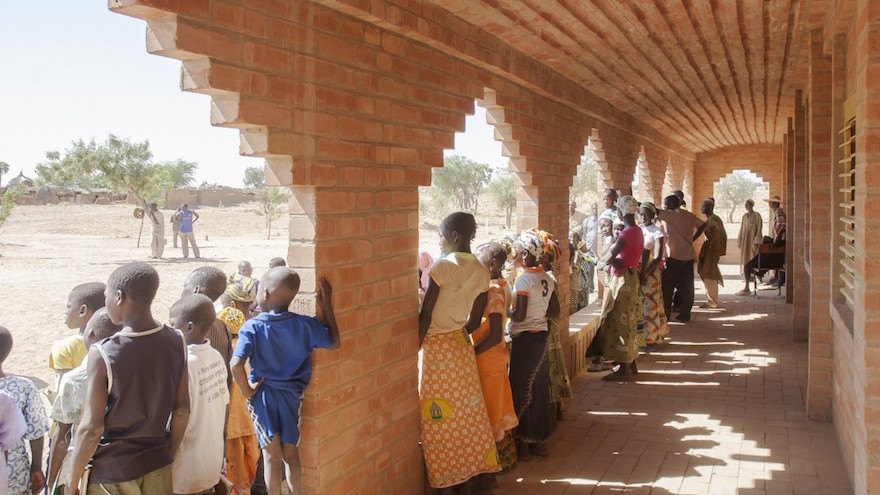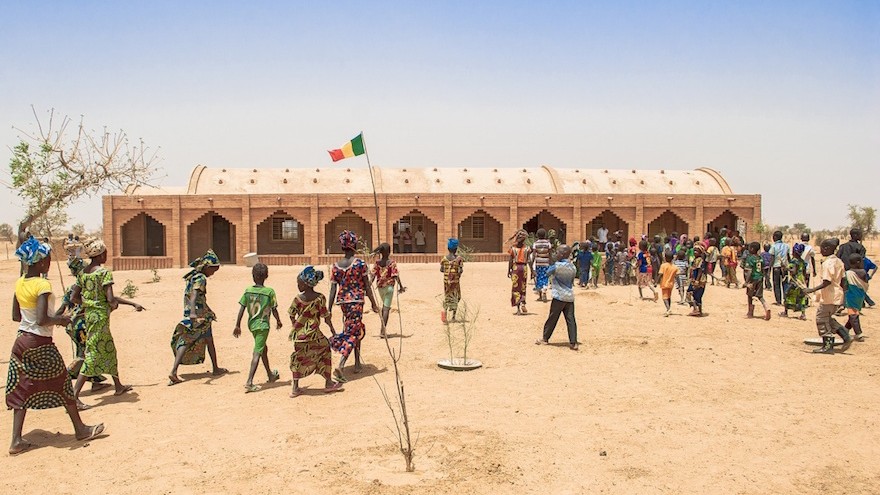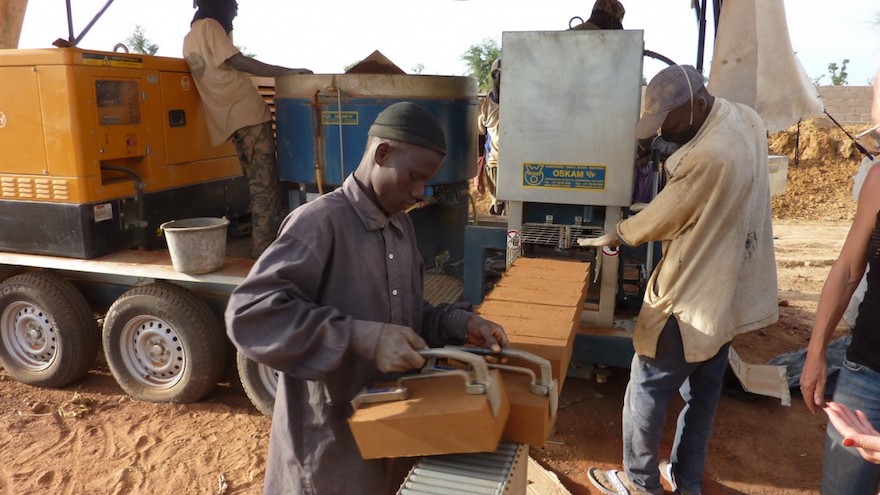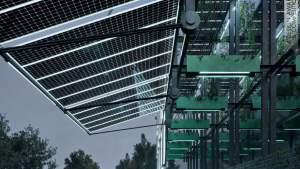LEVS architecten is an Amsterdam-based architecture firm that designs for various sectors including education, residential, health care and urban planning. Driven by the belief that architecture should be socially responsible, the firm is committed to its work in Mali where it has been active in the arid region of Dogon for 15 years. Its architectural projects in the Dogon community rely on Hydraulic Compressed Earth Blocks (HCEB), which LEVS champions as a sustainable and low-cost basis for design and development in the area.
LEVS’ work in Mali is made possible by its long-running partnership with Stichting Dogon Onderwijs (SDO), an association for development and education in Dogon. The compressed bricks are produced by a number of mobile presses and developed by SDO in collaboration with the Dutch company Oskam. To make the bricks, soil is taken directly from a construction site, ground down in the machine and compressed under 20 tons of hydraulic pressure.
The firm’s report, “What a brick can do in Mali” highlights how the HCEB bricks are forming a new kind of architecture in Dogon and how the local communities are benefitting from the architectural projects.
The bricks have significantly reduced production and transportation costs as they are produced on site. The soil on site is used to create the bricks, which minimises environmental degradation while providing a sustainable source of raw material for construction. Unlike making carbon-emitting fired bricks, the making of the non-fired compressed bricks does not release any gas pollutants into the air.
Apart from the production and environmental benefits, the bricks also create more comfortable interior spaces than traditional clay dwellings as they resist local weather conditions such as extreme heat and heavy rainfall. The colour and composition of the bricks blend into the landscape, which follows the lead of existing Dogon villages that are customarily integrated into their surroundings.
The most important component of LEVS’ work in Mali is its contribution to the development of the Dogon community, education and economy. The construction process always involves local masons who are trained in new building techniques that can result in further development in the area. The input from local masons ensures that the local architectural traditions are preserved but also combined with structurally advanced designs.
In addition to many educational scholarships and internships organised in collaboration with SDO, LEVS is currently building a new technical school for engineering and agriculture in the Mpoti region of Mali. This will add to their other Malinese projects, which includes three primary schools, a social housing concept and a residential property for a local entrepreneur.







